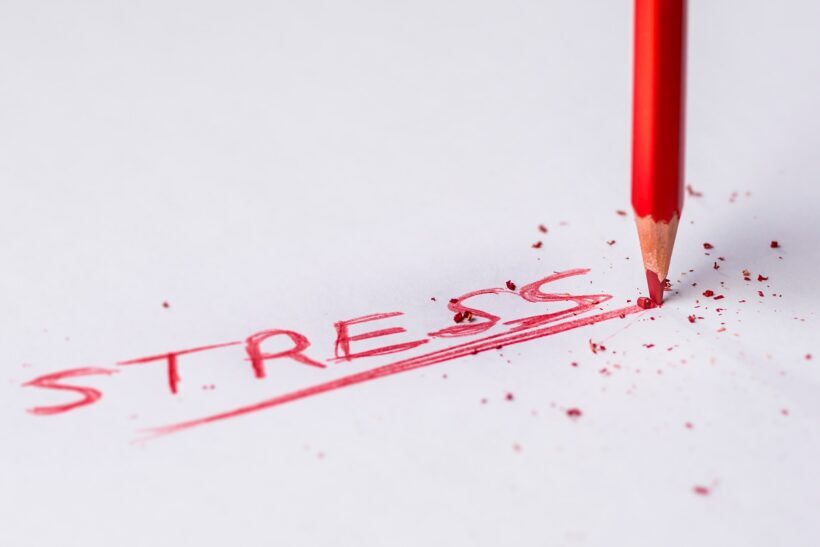We have all heard at least one person being nostalgic about the great time they had in college. And it’s true. Being on your own for the first time ever, pursuing a degree, meeting new people, and living in a new city can give you a new purpose and perspective in life. But we also have to admit that college can be stressful too. While all these great new opportunities might be a dream come true for some, they can be overwhelming for many others. And this overwhelming feeling might go away when you get settled in after a week or might stick around in the form of academic stress.
What Is Academic Stress?
To understand academic stress, we first need to understand what the term “stress” really means. In simple terms, stress refers to a distressed state of mind caused by various factors. Mental stress manifests differently based on the person or level of stress.
Now that we have clarified what “stress” is, it will be pretty easy to understand what academic stress is. We use the term “academic stress” to refer to the kind of psychological distress caused by factors pertaining to one’s academic performance. The stressors that cause academic stress vary depending on the student, but they all have in common the fear of failure in some way or another.
How Stress Affects College Students & Their Mental Health
While virtually everyone has experienced stress at some point in their lives, its intensity and the way we deal with it differs with every person. For some people, it’s just jitters before a presentation, and that’s it, but for others who don’t know how to deal with or manage it, stress can be a serious problem in their everyday lives. High levels of stress concerning academic performance have a negative impact on one’s mental and physical health. Ironically, academic stress also negatively affects a student’s academic performance.
Physical effects of stress
Though we have stated that stress is related to the mind, you may easily detect someone with higher stress levels due to the physical manifestations of academic stress. While physically, the signs of stress may differ from person to person, there are some more prevalent physical symptoms among students:
Muscle pain & headache
Many of us usually attribute headaches and muscle pain to factors such as dehydration, physical activity, etc. The truth is that muscle pain and headaches are also widespread symptoms of academic stress. When you are stressed, muscles in your body tense up; and when these muscles are tensed for a more extended period, it results in aches and pains in your body.
Nausea & stomach aches
Other common symptoms of academic stress in students include stomach aches and digestive issues like diarrhea or constipation. In even more extreme cases, academic stress manifests itself in the form of nausea and vomiting.
Psychological effects of stress
As we have already established, academic stress originates from the need to perform well academically for various reasons. The fear of failure in academic challenges can seriously strain students psychologically. Here are some of the most prevalent psychological symptoms that derive from academic stress:
Anxiety & depression
It is no news that academic stress can worsen symptoms for those that already have an anxiety disorder or depression. According to a survey conducted by the Anxiety & Depression Association of America (ADAA), 30% of students admitted that stress had a negative impact on their academic performance.
Sleep disorder
High levels of stress can disrupt your sleep schedule or quality. Whether in quantity or quality, less sleep pushes the body to produce more stress hormones like cortisol. And while it is normal for the body to produce cortisol, this particular hormone negatively affects your memory, metabolic rate, and blood glucose regulation when at high levels. This, in turn, will put a student on a vicious cycle where academic stress negatively affects your sleep, and the lack of sleep negatively affects your academic performance.
Causes of Stress During College
Academic stress may affect students of all educational levels, one way or another: whether they are performing in front of an audience, entering an exam, or some other way. However, it is essential to note that college students have some additional stressors that set them apart from students of other levels of education. College students experience stress due to external or internal factors. Here are some of the most common stress-causing factors in college students:
Finances
There are a few reasons why some people choose not to pursue a college degree, and the cost of tuition is one of them. Many of those who enroll in college have problems making ends meet due to tuition and other college-related expenses. Simultaneously working and studying can put a strain on the mental health of many students as they try to balance personal, academic, and work life. One possible solution to this problem may be to apply for scholarships, grants, or even loans.
Relationships or lack of friends
One of the main challenges for many college students is actually making time for themselves or socializing with others. This is especially difficult when they need to work to be able to afford college. Lack of quality time with friends or absence of a social life altogether has a negative effect on a student’s mental health as there is virtually no time to “recharge.”
Homesickness
Think about this: One day, you are a carefree 17-year-old, eating home-cooked meals every day and having the best time of your life in high school. A few months later, you are legally an adult, getting your first job and probably moving thousands of miles away from everything you have ever known to go to college. Even the mere thought of such a transition is enough to stress you out. College students are now far away from their families and responsible for everything that concerns their own lives.
Coursework
The transition from high school to college can be tough on many students for various reasons. One of the main stressors for college students is the coursework. Students usually struggle to meet deadlines or handle the increased workload that comes with enrolling in college.
Ending the Stigma
The best thing to do in order to help students deal with academic stress is to end the stigma. This can be done by spreading awareness of the effects of academic stress on students’ mental, physical, and emotional health. Only by continually and persistently addressing this issue and educating each other can we overcome or at least learn how to manage academic stress.
✅ Request information on BAU's programs TODAY!
Tips to Overcome Stress During College
If you or someone you know are experiencing academic stress and its adverse effects on your mental and physical health and your academic performance, it is time to take action. Learning what to do to prevent becoming stressed due to academic workload or even how to manage your academic stress is extremely important for many reasons we have already discussed. Here are some tips on how to overcome academic stress when in college:
Maintain a healthy diet
A healthy diet is a well-balanced diet that includes vitamins, minerals, antioxidants, and a regular eating schedule and daily exercise. While maintaining a healthy diet should be a priority for everyone, a healthy diet can also help with overcoming academic stress. Eating healthy will keep your blood pressure and glucose stable, both of which may fluctuate when a person is in a stressful situation. While many students make it a habit of drinking caffeinated drinks to stay focused on their studies, it is best to opt for water or milk. This is because caffeinated drinks raise cortisol levels in the body, similar to what stress does.
Remain physically active
Being physically active does not mean you need to be all closed up in a gym sweating away. Any sport or physical activity counts as exercise as long as it increases your heart rate. When exercising or taking part in physical activity, your body releases hormones (endorphins) that, among other benefits, reduce stress.
Make sure you spend time outdoors
Sometimes just being in a room by yourself you will associate with stress and anxiety and hence stress out. College students can also deal with academic stress by spending time outdoors. Leaving your dorm room or library and simply going outside for a walk can do wonders for your focus. Being surrounded by nature and greenery significantly reduces your cortisol levels.
Avoid procrastinating
The change in workload is one of the leading causes of academic stress in college students. By learning how to manage your time better, you make sure to always meet your deadlines. By avoiding procrastination, you spread out the workload, so you don’t have to worry about working under pressure when the deadlines approach.
Seeking Medical Support
While totally manageable for a lot of people, academic stress can have powerful adverse effects on others. Some of the negative effects of academic stress may be too exhausting to deal with on your own. That is why it is always essential to know places to seek help if needed:
On-campus mental health services
Lately, there has been an increase in awareness surrounding mental health issues, including academic stress. That is why many institutions offer on-campus health services for their students. You can learn more about these services by visiting your college’s website.
Off-campus centers and hotlines
If you feel that on-campus mental health services won’t do for you personally, you can always seek help in off-campus centers. Another great source that offers support is the hotlines available 24/7. Check the number for suicide prevention lifelines to consult with specialists on anything you might be dealing with, including anxiety, depression, stress, etc. You can contact the National Suicide Prevention Lifeline at 1-800-273-8255.
Conclusion
Though there has been some progress in awareness regarding mental health, specifically the effects of stress on mental and physical health, there is still so much to do. There are a few steps students can take to better deal with academic pressure, like eating healthy, exercising, managing their time better, consulting with loved ones and specialists, etc. As academic stress can have serious negative effects on one’s health, everyone should take it seriously and work towards overcoming it the best they can.
















